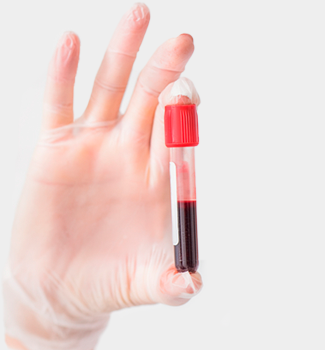Chronic inflammation accelerates ageing from the inside out — affecting skin, energy, and longevity. Discover how to identify inflammatory markers and support your body’s natural balance with Youth Revisited’s Inflammation & Anti-Ageing Panel.
The hidden force behind premature ageing
We often associate ageing with fine lines, slower metabolism, or low energy — but one of the most powerful drivers of these changes begins quietly: inflammation.
Inflammation is a natural and necessary response. It’s how the body heals and defends itself. But when it becomes chronic — simmering at a low level for years — it starts to erode the very systems it once protected. Scientists often call this process “inflamm-ageing.”
What chronic inflammation does to the body
At a cellular level, chronic inflammation accelerates the breakdown of collagen and elastin, leading to loss of skin firmness and resilience. It also contributes to oxidative stress — the imbalance between free radicals and antioxidants — which damages cells and speeds up ageing across the body.
Internally, it can:
Disrupt hormone balance
Impair energy metabolism
Affect the immune system’s ability to repair tissues
Influence brain health, mood, and sleep quality
The effects may be subtle at first — tiredness, slower recovery after exercise, or dull, reactive skin — but over time, these small signals add up.
Common triggers of low-grade inflammation
Dietary imbalances – High sugar intake, processed foods, and trans fats are major culprits.
Chronic stress – Elevated cortisol levels can keep the body in a constant “alert” state.
Sleep deprivation – Inadequate rest prevents the body from repairing inflammatory damage.
Environmental exposure – Pollution, UV radiation, and toxins can all trigger inflammatory pathways.
Hidden infections or gut imbalance – Poor gut health is closely linked with systemic inflammation.
How testing helps uncover the root cause
Inflammation isn’t always visible — but it is measurable. Blood testing can identify key markers that reveal whether your body is experiencing chronic inflammatory stress.
The Youth Revisited Inflammation & Anti-Ageing Panel includes important biomarkers such as C-reactive protein (CRP) and homocysteine, which provide insight into systemic inflammation and cardiovascular ageing. Tracking these markers over time can show whether your lifestyle choices are helping or hindering your body’s repair processes.
Restoring balance through simple shifts
Once inflammation is identified, even small changes can make a profound difference:
Prioritising anti-inflammatory foods like berries, olive oil, and omega-3s
Managing stress through breathing, movement, and grounding techniques
Supporting gut health with fibre, hydration, and probiotic-rich foods
Ensuring restorative sleep and mindful recovery after exercise
These daily choices, combined with an understanding of your personal biomarkers, form the foundation of long-term vitality and graceful ageing.
In summary
Inflammation is one of the most powerful predictors of how well we age — yet it’s also one of the most manageable. By identifying it early and supporting your body’s natural balance, you can age with energy, clarity, and radiance from within.




